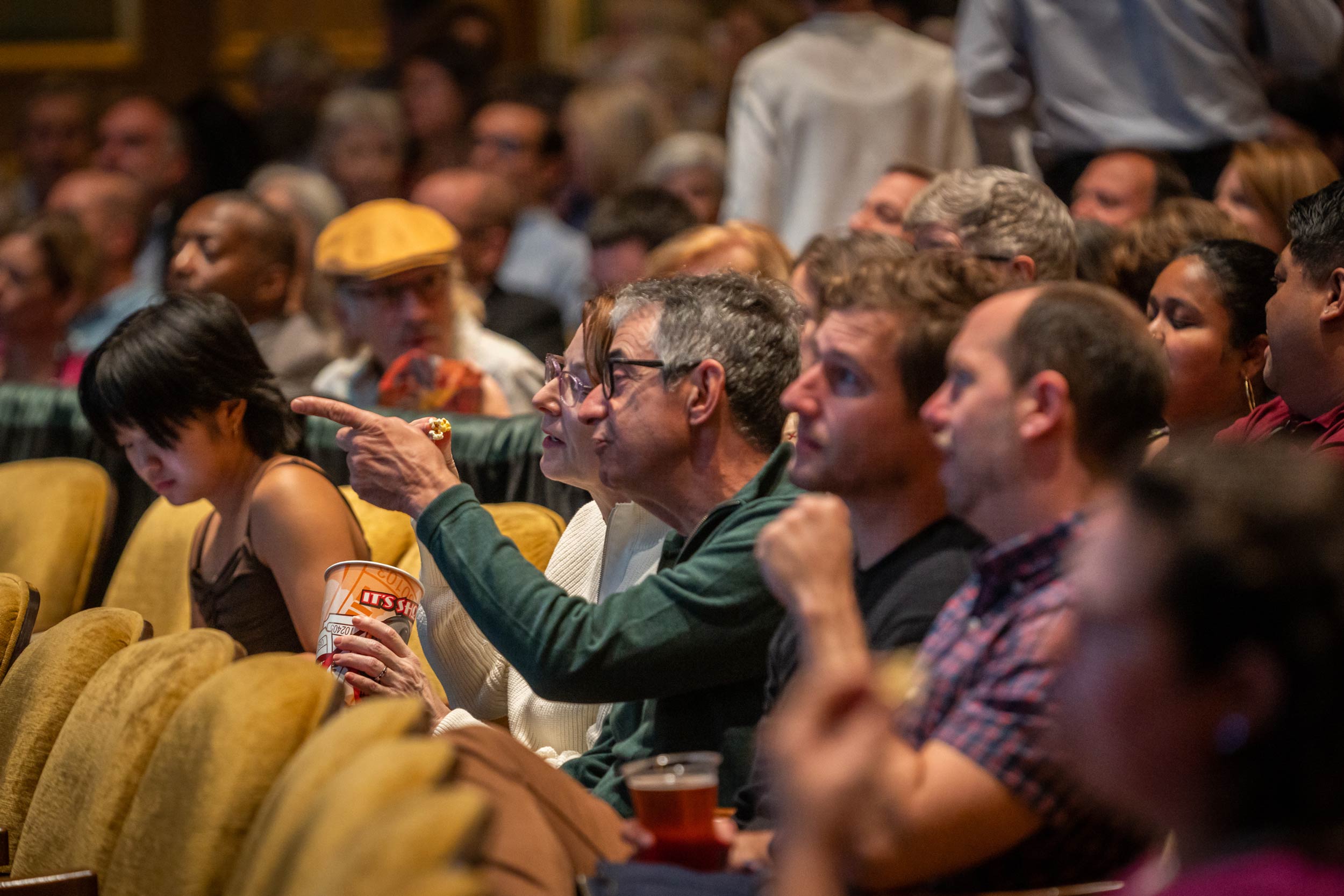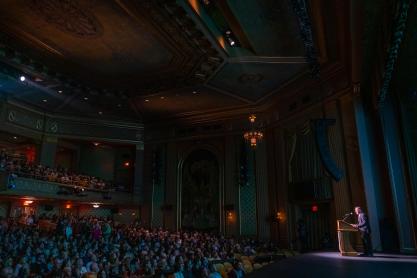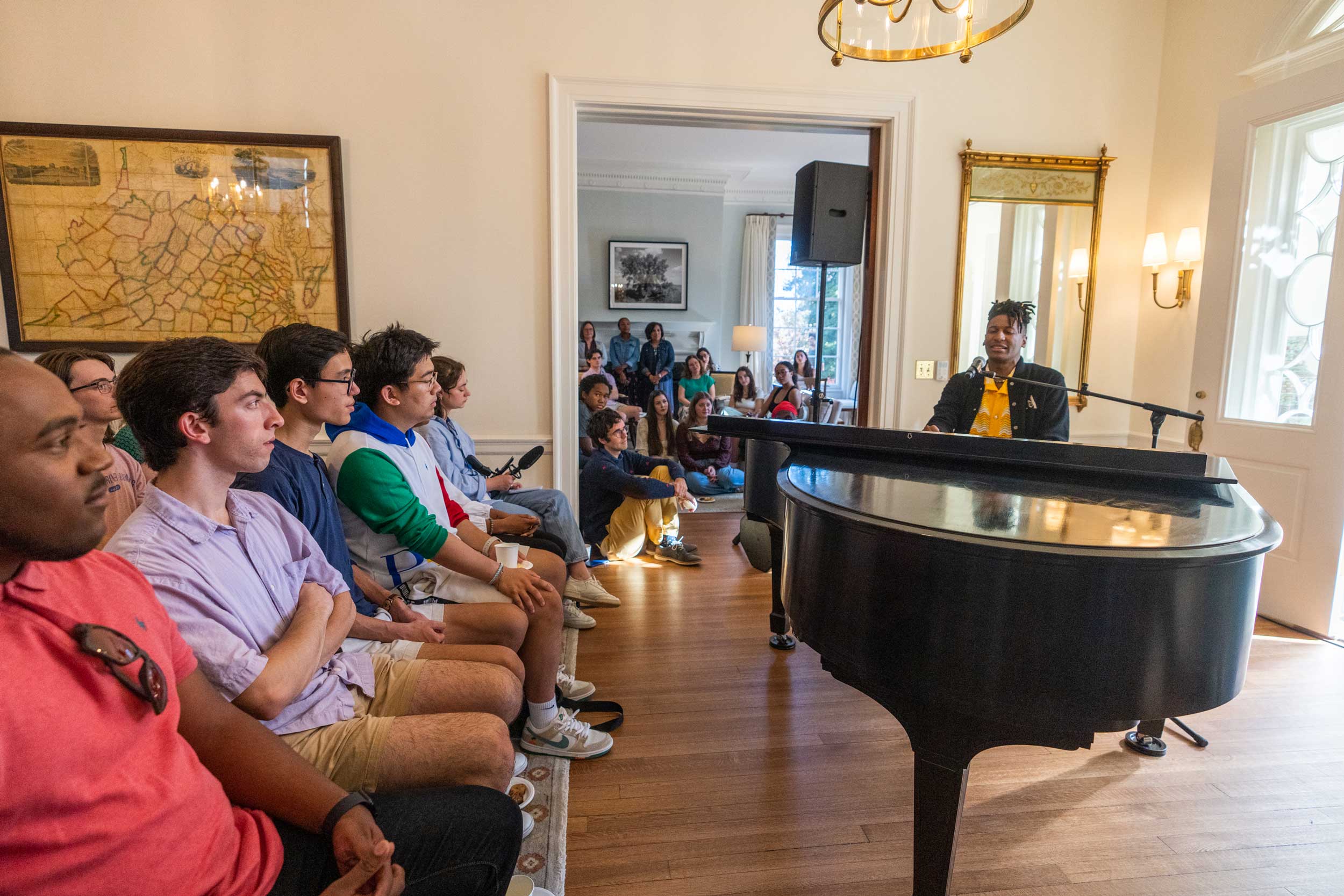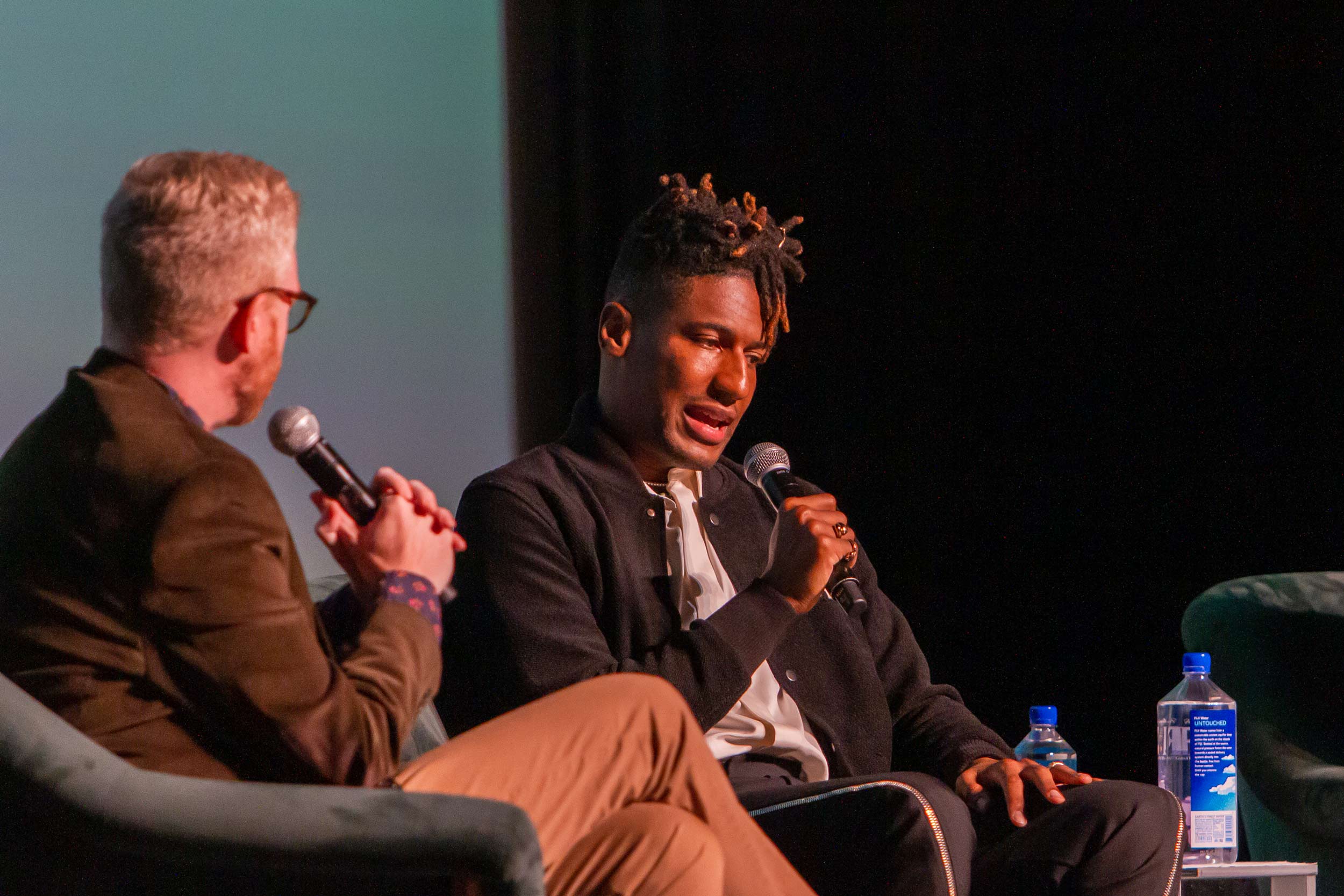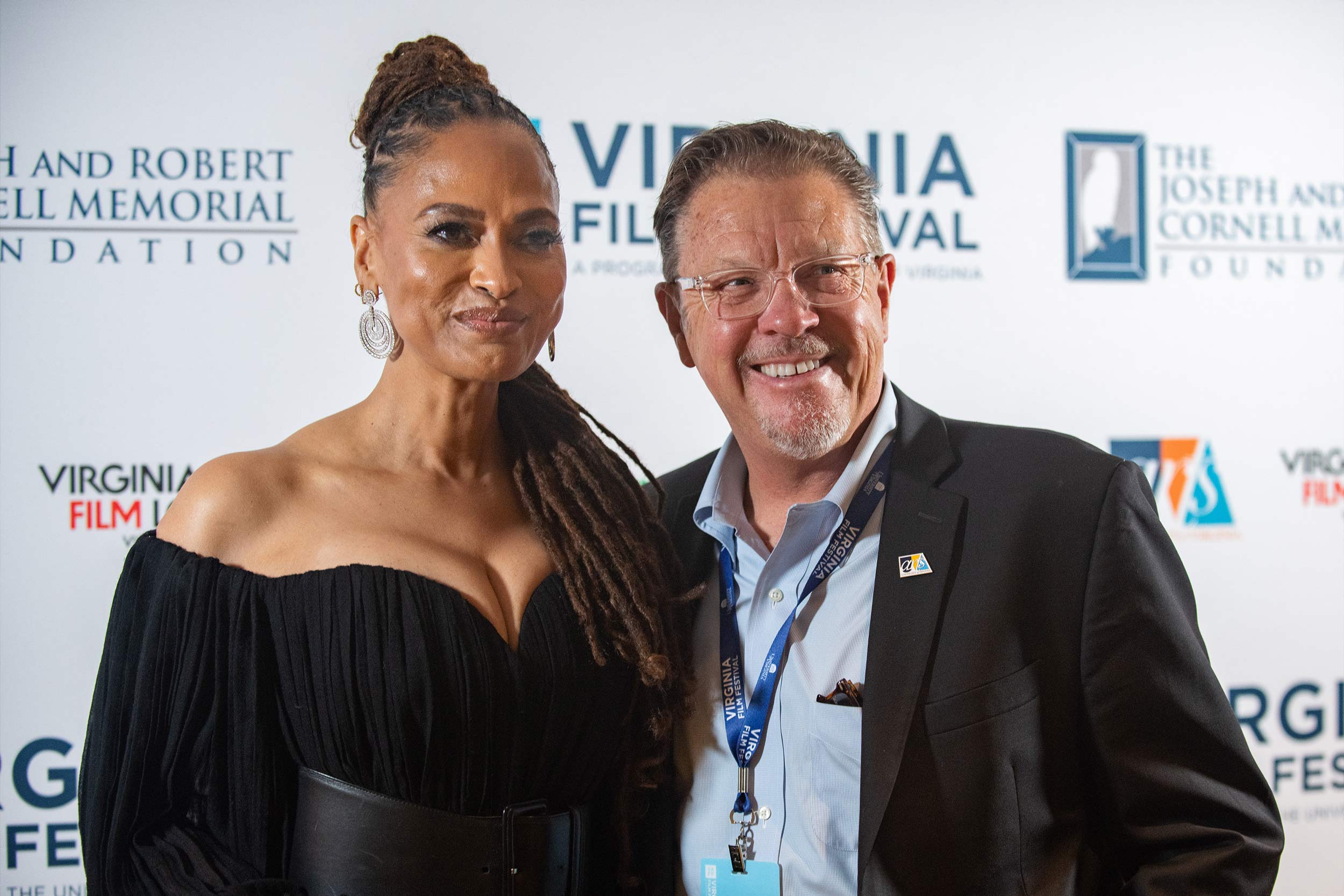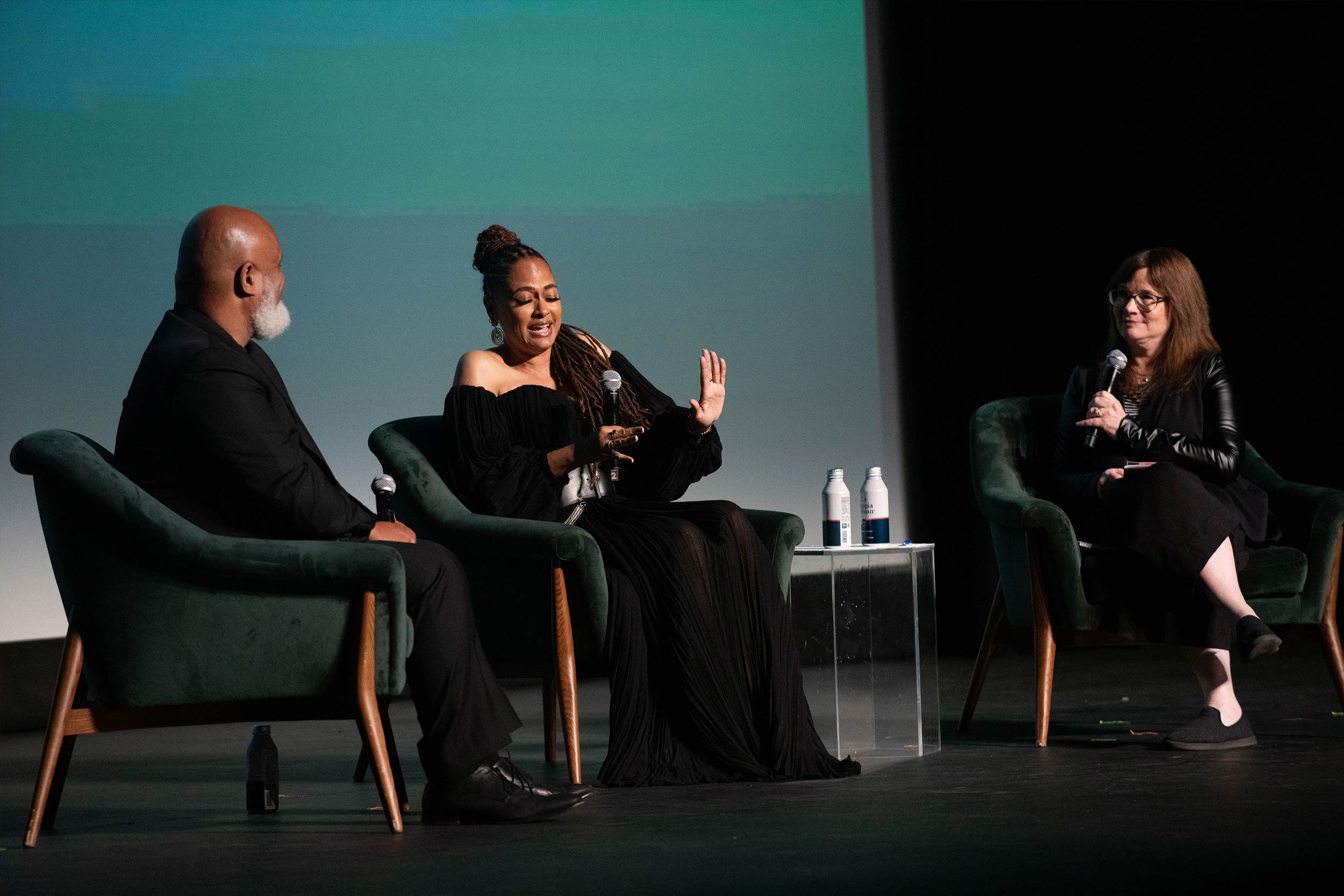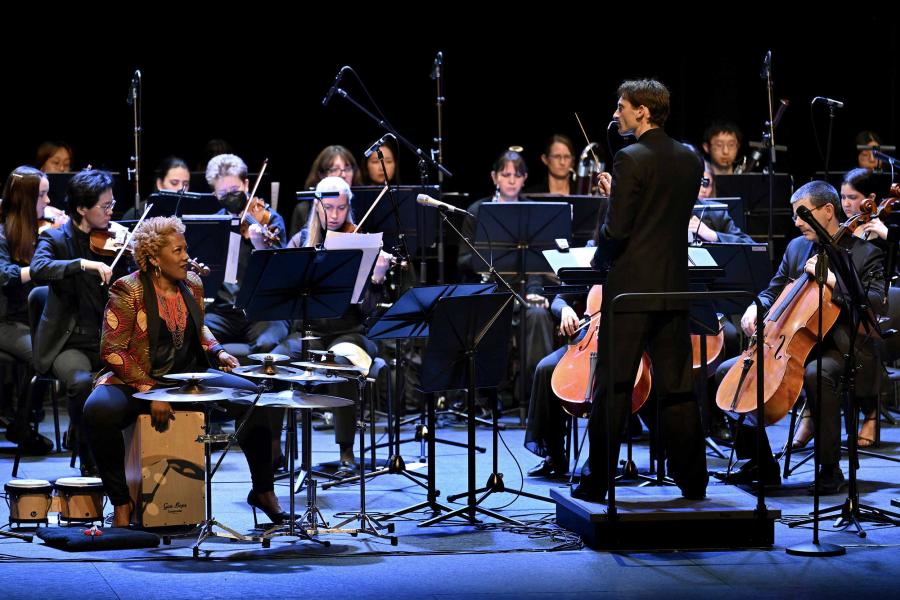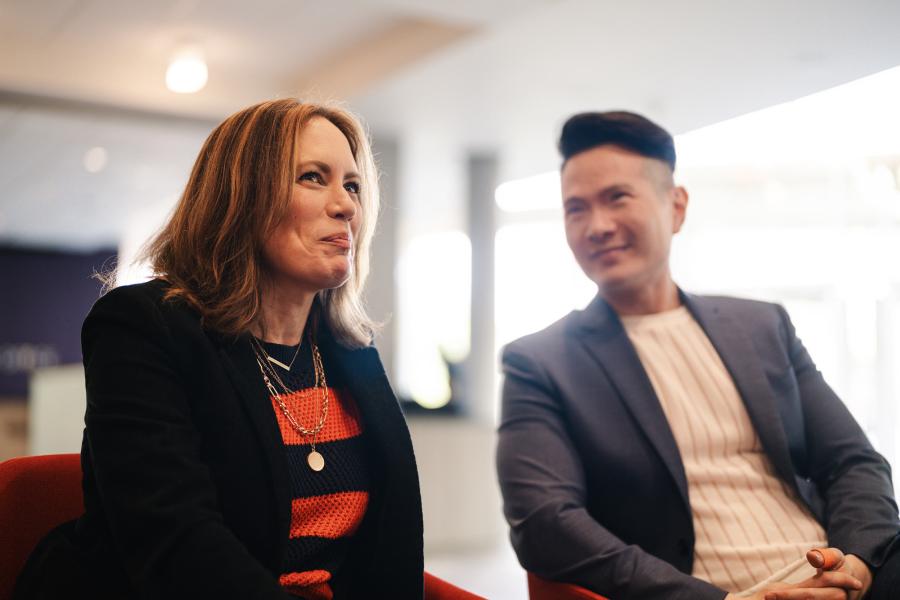Carlehr Swanson knew she was in for a treat when Grammy Award-winning musician Jon Batiste visited Carr’s Hill at the University of Virginia on Sunday.
Swanson, a fan of Batiste’s genre-bending style who had put herself on the waitlist for Batiste’s “Arts on the Hill” event, just learned she had gotten a ticket and found a front-row seat to the action.
For Swanson, the concert at Carr’s Hill was a once-in-a-lifetime opportunity. It didn’t hurt that, like Batiste, she’s also a gospel and jazz musician.
“This is a combination of all of my interests,” Swanson said. “This was a chance to see world-class talent right here.”
